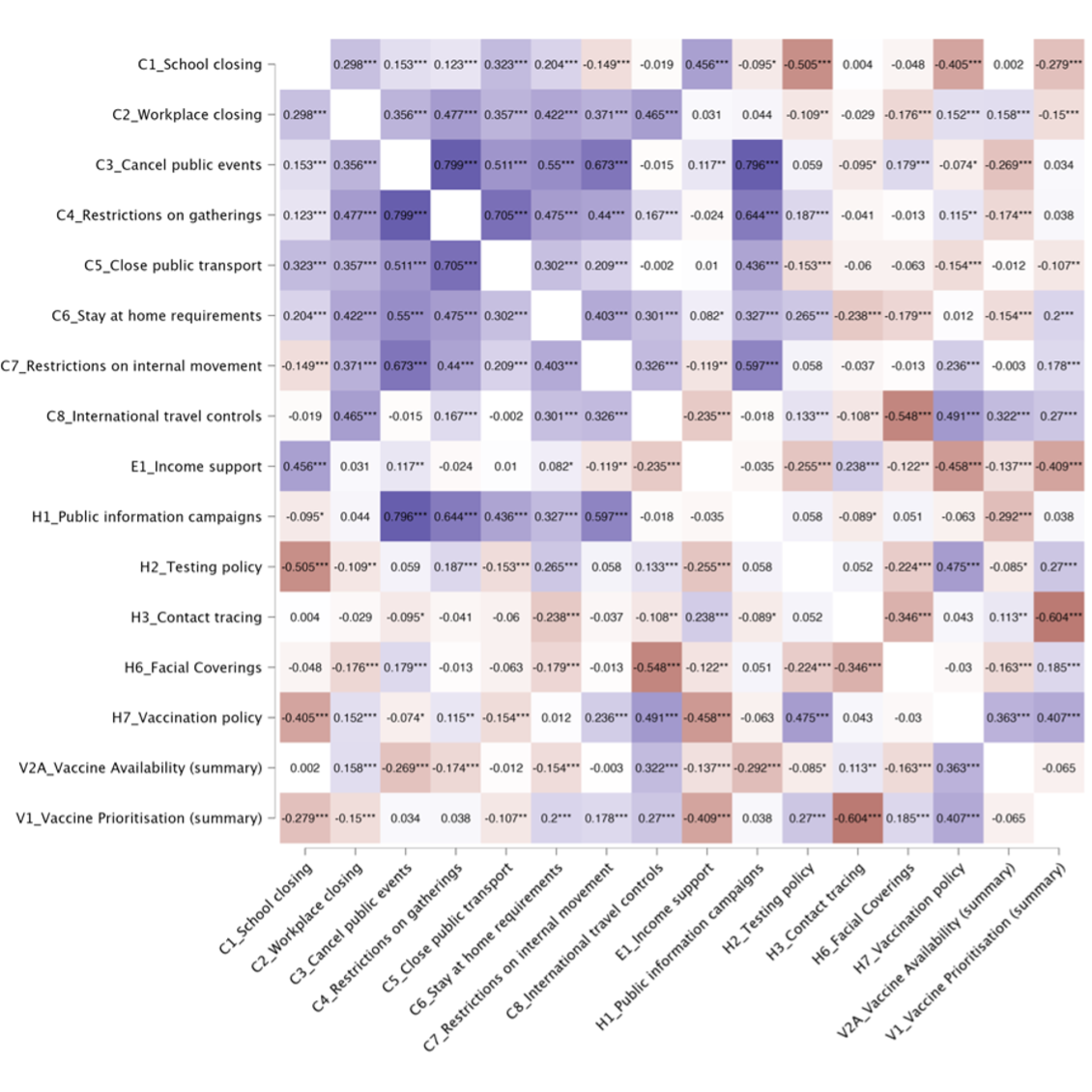VOLUME 16 NUMBER 2 (July to December 2023)

SciEnggJ. 2023 16 (2) 431-441
available online: December 05, 2023
*Corresponding author
Email Address: bmvallejo1@up.edu.ph
Date received: June 16, 2023
Date revised: November 9, 2023
Date accepted: November 17, 2023
DOI: https://doi.org/10.54645/2023162XFJ-45
ARTICLE
An assessment of the Philippines government’s response to the COVID-19 pandemic based on policy response indices
University of the Philippines, Diliman, Quezon City
2Science and Society Program, College of Science, University of the
Philippines, Diliman, Quezon City
3Department of Political Science, College of Social Sciences and
Philosophy, University of the Philippines, Diliman, Quezon City
COVD-19 has resulted in governments worldwide implementing policies for pandemic suppression or containment. The Oxford COVID-19 Government Response Tracker (OxCGRT) global database of pandemic policy responses provide open access data to allow for national assessments of pandemic response policies. Using OxCGRT data for the Philippines, we assessed the temporal trends of pandemic response indices and indicators. Using principal components and principal coordinate analyses, OLS and logistic regression on the ordinal policy response variables, composite policy response indices, and epidemiological estimates of pandemic spread, we assess which policy response is most significant in pandemic management. Stringency and Restrictions to Internal Movement are most significant and this reflects on the primary policing and securitizing strategy used by the Philippines government in the pandemic response. This has limited effective outcomes based on its relationships with health, economic and vaccination policy categories. We contextualize these findings with the outcomes of the government’s vaccination policy.
© 2026 SciEnggJ
Philippine-American Academy of Science and Engineering